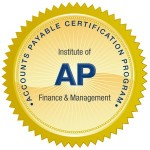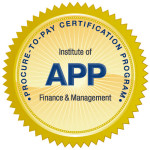
- Membership
- Certification
- Events
- Community
- About
- Help
In March 2024, the IRS quietly released a new version of its Form W-9, “Request for Taxpayer Identification Number and Certification.” Although this revision had been pending for some time, the actual update was introduced with little fanfare.
We spoke with tax expert Jason Dinesen to get a better understanding of how the form has changed and what it means for organizations that must collect this information. In this podcast, Dinesen answers these key questions — and more:
Listen to this highly informative conversation here.

Jason Dinesen
Jason is a tax nerd, entrepreneur, tax expert and a well-known presenter of continuing education courses. Known for his sharp tax interpretations, he is one of the quickest to bring the analysis of the latest tax updates and IRS guidance to the professional community. Jason has coached over 200,000 accounting, tax, and HR professionals on various topics of accounting, individual taxation, corporate taxation, professional ethics and much more.
He has presented over dozens of webinars on Form 1099 (for 10 years on this subject!); marriage in the tax code; tax updates; the new Form W-4, payroll updates, filing status, tax credit and other issues relating to the modern-day household setting. He also teaches on Individual Income Tax and Business Analytics. Jason always had a knack for radio shows and has and regularly features as an anchor for Radio Iowa. Jason was born and raised in Iowa and has a degree in corporate communications from Simpson College in Indianola, Iowa.

Royce Grayson Morse
Royce Grayson Morse has been working with IOFM for the past eight years, writing and editing content about Accounts Payable, Accounts Receivable, automation, and industry trends. She has worked on the IOFM Certification Guides and written the associated examinations; edits the annual 1099 and 1042 Master Guides; conducts podcasts; and manages the IOFM.com website content.
Grace Chlosta: Welcome to the IOFM podcast. This is a podcast for accounts payable and accounts receivable professionals who want to stay in the know with current AP and AR trends and ideas. We'll be interviewing professionals in this space on a wide variety of subjects, including automation, artificial intelligence, career growth, compliance, leadership, and much more.
Today we'll be interviewing Jason Dinesen. Jason is a tax nerd, entrepreneur, tax expert, and a well-known presenter of continuing-education courses. Known for his sharp tax interpretations, he is one of the quickest to bring the analysis of the latest tax updates and IRS guidance to the professional community. Jason has coached over 200,000 accounting, tax, and HR professionals on various topics of accounting, individual taxation, corporate taxation, professional ethics, and much more.
00:01:03
He has presented over dozens of webinars on Form 1099 for ten years on this subject, marriage and the tax code, tax updates, and new Form W-4, payroll updates, filing status, tax credit, and other issues relating to the modern-day household setting. He also teaches on individual income tax and business analytics. Jason always had a knack for radio shows, and regularly features as an anchor for Radio Iowa.
Jason was born and raised in Iowa, and has a degree in Corporate Communications from Simpson College in Indianola, Iowa. And today he'll be interviewed by Royce Grayson Morse.
Royce Grayson Morse has been working with IOFM for the past eight years, writing and editing content about accounts payable, accounts receivable, automation, and industry trends. She's worked on the IOFM Certification Guides and written the Associated Examinations, edits the Annual 1099 and 1042 Master Guides, conducts podcasts, and manages the IOFM.com website content.
00:02:04
Royce Morse: Hi, Jason, and welcome.
Jason Dinesen: Well, hello, Royce. It's good to be here.
Royce Morse: Thank you. I appreciate it. I'm looking forward to our conversation. So today we want to talk about a new Form W-9 from the IRS and what that means to folks that are in accounts payable, primarily. Tell me about when this form was released, and then we can talk about what changed.
Jason Dinesen: Yeah. So we've known that there were going to be revisions to the W-9 for a good year now. It was actually last July, out in the "Draft Forms" part of the IRS website, they put out a draft version of a new W-9. Then basically nothing happened with it until March of this year. They released it for real.
00:02:59
They did it quietly. It's kind of strange, because there's been no fanfare from the IRS about this. They just kind of put it out there. If you go to the IRS website under "Common Forms" – if you go to "Forms," it's one of the common forms that's there that you can just click on is the W-9, and it takes you to a subpage. On that subpage on the IRS website, under "What's New," it says "No Recent Updates." Yet, the form was dropped late March of 2024, so about three – well, depending on when you're listening to this, three or four months ago at this point. It happened very quietly. There's nothing on the IRS website about it. I subscribe to all of their different weekly newsletters and such. There's been nothing about it.
00:03:57
So it's one of those things where, for a lot of people listening to this, this may be new information to them. They have not heard that the W-9 is out there as of late March. [That's] when they put it out there.
Royce Morse: Okay, so what's different?
Jason Dinesen: So there's two things that are different. They've added a new box to the W-9 called Box 3b. I've got the W-9 pulled up here as we're talking, and I'm just going to read this, what it says, and then we can back up and talk about what it means. "If on line 3a," that 3a is all of the checkboxes, where whoever is filling out the form tells you how they're taxed. "If on 3a you checked partnership or trust or estate, or LLC taxes as a partnership, and you are providing this form to a partnership, trust or estate," and basically you have foreign partners, owners or beneficiaries, check this box.
00:05:06
So it's referring to whoever is filling out the W-9. If they have foreign owners, they check that box. What that means is – basically, there's a couple of things that I would say. One is, if your business – so the AP people and other businesses and so forth that hand out the W-9s to contractors and others, if your business is a partnership, you should be getting W-9s from every partner in your business. That is a best practice. It's actually a requirement. You should be getting W-9s from your partners.
00:05:56
If a partner gives you back a form with that box checked, that means you have some additional legwork to do, in particular involving these two forms called Schedule K-2 [and] Schedule K-3. Nothing to do with 1099s. It's really not something that we would talk about at IOFM. It's a tax return/tax preparation thing. So if you see that box checked, it's like a stop and talk to your accountant or whoever the applicable party is in your business. If you do everything in-house, talk to your CFO, your accounting manager, whoever. So that's one thing on that. But the second thing – and this just kind of hit me the other day – [is] businesses are going to be getting W-9s back from their contractors or whoever. Even though the contractor may not even need to fill out line 3b, they might anyway.
00:06:59
And if you get a W-9 with that box checked that indicates anything foreign, that's another stop and talk to whoever the applicable party is, because I think it also calls into question: Is the W-9 even the right form for this person to fill out, or are you getting into the much more complicated and scarier W-8 and 1042-S and FATCA issues. So it's a "do not pass go" sort of thing if that box is checked, yeah.
Royce Morse: Gotcha. So have they clarified at all, or provided any additional explanation, about LLCs? One of the things that we got questions about quite a bit is that folks – they're an LLC but they say they're a corporation, which isn't the same as an S or a C-corporation, where you don't have to withhold. But if they're an LLC, presumably you do. Did they change anything for that, or is that still confusing?
00:08:03
Jason Dinesen: Well, that's a good question. It's a nice segue into the second change that was made on the form. So the first change is the addition of that box relating to foreign partners/owners/beneficiaries. But also in 3a, where all the different checkboxes are, where whoever is filling the form out is telling you how they're taxed, which we care about for 1099 purposes because that drives whether or not they get a 1099. All those checkboxes, the IRS has clarified – it's like they've tweaked the language relating to LLCs, in particular LLCs with one owner. I guess I don't know how much you want me to kind of go off and explain some things here, Royce, or how much you want to just ask questions about this, but they've tweaked the language basically to make it clear that if the LLC has one owner and it has not filed any paperwork with the IRS to elect to be taxed as a corporation, it is instead a sole proprietor and that one-owner LLC should check the "Sole Proprietor" box, not the "LLC" box. That was not particularly clear. In fact, it wasn't clear at all on the prior version. It's a little more clear on this new version.
00:09:30
Royce Morse: Okay, yeah, that's helpful. So let me throw a couple of what-ifs at you, and then you tell me whether this would be – if they would be subject to withholding. So let's say that you are a sole proprietor LLC and you haven't filed any paperwork with the IRS to prevent withholding.
00:10:00
Then the AP people would have to withhold, correct, as long as it exceeds the limit?
Jason Dinesen: Yes, they would need to issue a 1099 in that situation, yeah.
Royce Morse: I'm sorry, not withhold but issue a 1099.
Jason Dinesen: That's right. You would need to withhold if they didn't give you their Social Security Number. But as far as issuing 1099s – and let's talk about what you would expect to see from that one-person LLC, because a lot of W-9s that you're going to come across are probably not done correctly with those one-owner LLCs.
Royce Morse: We see it a lot.
Jason Dinesen: Yeah. I mean, the IRS is very clear on this in the W-9 instructions. Not so much on the form itself. It's never been clear on the form, but if you look in the instructions it's always been clear that what should happen is, on Line 1, which is the name of the individual, that should be the owner's name, their name personally on Line 1, and the LLC name goes on Line 2 as like a "doing business as" name.
00:11:19
And then in 3a they check the individual/sole proprietor box. Then, down under taxpayer identification number, it should be the Social Security Number of the individual, or they EIN if the EIN is in that person's name personally. LLCs that have an EIN should not put the LLC EIN if it's a one-owner business.
00:11:55
And just to continue this thought, what is that? It's because it's a terminology thing here. A one-owner LLC that has made no elections to be taxed as a corporation, the technical name of that is a "disregarded entity" for tax purposes, and this is where it gets confusing because the LLC exists for legal purposes. It's filed with the secretary of state in their state. It has the liability and legal protection, but, for tax purposes, it's called a disregarded entity. I always say: Interpret that literally. The existence of the entity is disregarded for tax purposes. So that's why it should be the individual's name and the individual's Social Security Number.
00:12:51
Royce Morse: Gotcha. That makes a lot of sense. Okay, so we could do a really deep dive there, but I think, for now, we'll move on, if that's okay with you.
Jason Dinesen: Sure.
Royce Morse: So let's say that you're a business and you have W-9s for all your independent contractors. Do you need to get new ones now because there's a new form?
Jason Dinesen: That's a good question. If we turn back to the fact that there's a new W-9, and a lot of people are just hearing this for the first time, first of all, when do you need to start using it? The answer is now, basically. The second thing is to answer the question of: What about all of those W-9s already on file? You do not – DO NOT – need to get new W-9s. I know some businesses have it as a company policy that you get new W-9s from everybody every year, and that's fine.
00:13:59
Considering that a lot of businesses don't get W-9s at all – I don't think too many IOFM folks are not getting W-9s, but there's a lot of business out there in the real world that don't. I applaud a business that says, "Let's get new W-9s every year," but you don't have to. The W-9 never expires. So even if like five years have passed, the rule is that as long as you believe that the information is still accurate, so you have no reason to believe that it's wrong, you can keep using the W-9 that you have on file. It never expires, so you could use it for as long as you think the information remains valid.
Royce Morse: Okay, that's good. And I do know that some of our folks do have a policy where they solicit new W-9s periodically, every year, every couple of years. If you're ready to get a new one, obviously, you would need to use the new form.
00:15:00
Jason Dinesen: Correct.
Royce Morse: But existing ones don't need to be replaced. You can keep those ad infinitum, if you feel like they're valid.
Jason Dinesen: Correct.
Royce Morse: Okay. And now let's see. We were talking a little bit about some other situations. The question we kind of talked about offline was an S-corporation. The contractor said that they were an S-corporation. Do you need to get proof of that?
Jason Dinesen: Yeah, that question that you and I were talking about offline comes from a presentation I was giving. I teach on 1099s nearly every day, usually in webinar format, although I come to the IOFM conference, too, and give in-person presentations.
00:15:54
But this was a webinar where someone asked: "If you get a W-9 and the LLC box is marked, and then they mark 'S' for S-corporation, do you need to get proof that they are an S-corp?" Because this person had attended some training somewhere else, where the presenter was adamant that you do need to get proof. I have never seen anything that says that. I flipped through – I'm thinking most IOFM members in the AP department are probably familiar, Royce, with the gigantic – isn't it like 583-page desk reference guide? There's nothing in the desk reference guide about this either. So the answer is, no, you don't need to see proof that they're an S-corp. If the W-9 is filled out, whatever is on the W-9, you can rely on that for your purposes in the accounts payable department.
00:17:02
You do not need to see proof. The only time you ever need to see proof of anything on the W-9 is in CP2100 letter situations, second notices, where when the person gives you their taxpayer ID number the second time, they are supposed to give you – if it's a Social Security Number, a copy of their Social Security card to prove the number. But that's the only situation where you're ever asked to see proof of any of this stuff with W-9s or 1099s.
Royce Morse: That makes sense. When somebody submits a W-9, they sign it and attest that the information is true, so it seems like it's their responsibility to report that information accurately.
Jason Dinesen: Exactly.
00:17:56
Royce Morse: And if you are an accounts payable department, how are you going to know unless you want to do a thorough search of all the corporate records filed by state or whatever? It seems like that shouldn't be your responsibility.
Jason Dinesen: Exactly.
Royce Morse: Good to know. So what else should people know about this new W-9 form? Are there any other little quirks or tips and tricks you have for us?
Jason Dinesen: Well, those are the two main things: the tweaking of the language relating to LLCs and what they should do on Line 3a, and then the foreign ownership question on 3b. I think the only other thing I would say on W-9s is don't underestimate the importance of getting a W-9. I know you and I have talked about this, and we certainly don't need to go deep into it here today, but the W-9 is a vital form basically for anybody that you're paying in your accounts payable setting, for anything that could be 1099-able, and also look at things that could be subject to what's called FATCA reporting – foreign account report.
00:19:15
Even things like certain interest payments on loans and stuff. Just make sure, when you're making those kinds of payments, [to] get a W-9 from whoever you're paying. I know the desk reference guide talks about this, and the certification course talks about this, too, about the eyeball test, where, if the recipient (whoever you're paying) has the word "Corporation" in their name, you can assume that you don't need to send them a 1099.
00:19:52
But that is pretty much outdated now. You really shouldn't be using the eyeball test. Get a W-9 from that corporation. Get a W-9 from the bank – anybody that you're paying for anything that potentially could be 1099-able or subject to FATCA reporting and FATCA withholding. It gets complicated. It's hard. But you solve – I always tell people: You solve all of your problems with all of this stuff if you get a W-9.
Royce Morse: Yeah, that makes a lot of sense. And we do get questions sometimes from our "Ask the Expert" feature, where people write in and say, "I've asked for a W-9, and the vendors says, 'I don't have to provide you with one.'" That just blows my mind that somebody is going to do business and then thinks that they don't have to provide a W-9.
00:20:51
On the other hand, if you're dealing with a company or a bank or something like that, it seems to me that there should be no resistance at all because this is something they do all day, every day.
Jason Dinesen: Exactly. I agree with you on that. If they won't fill out a W-9, I think that's a stop and ask why sort of situation.
Royce Morse: Good question. Why do you think you don't need to do that? Interesting take. But, yeah, always err on the side of caution and get a W-9.
Jason Dinesen: Exactly. Like I say, it solves all of your problems. And basically, you can sleep at night knowing that you've met all of your obligations. Problems could still arise, especially with Taxpayer Identification Numbers. I'm sure, for a lot of our listeners, CP2100 letters and B notices are probably the bane of their existence, but it's still better than not getting a W-9 at all, because there's a process to fix things then.
00:21:53
You get a W-9. Something's wrong on it? You get a CP2100 letter then. There's a process to fix that. Whereas, if you're not getting a W-9, you're opening up a big can of worms on lots of different avenues.
Royce Morse: Yeah, and it seems to me, getting a W-9, if you do get audited, shows that you acted in good faith. You tried. There may have been mistake or there may have been an error, but you weren't disregarding the legislation, the law on that.
Jason Dinesen: Exactly. In fact, to get penalty relief under reasonable cause, getting W-9s is one of the ways that you can show that you acted responsibly. You tried to get a W-9. That can help you at getting reasonable cause penalty relief, if the IRS tries assessing penalties.
Royce Morse: That makes a lot of sense. Well, this has been very interesting. I appreciate you taking the time to speak with us about this topic. Hopefully, as more changes occur, we can have more conversations and more clarification on some of these issues. Thank you so much, Jason.
00:23:05
Jason Dinesen: All right, thank you.
[music playing]
Grace Chlosta: Thank you so much for listening to the IOFM podcast. Remember to head on over to the Member Forum to discuss today's episode and provide ideas for our next one. And to stay up to date on IOFM's current events, both in-person and virtually, head on over to IOFM.com.
Continuing Education Credits available:
Receive 1 CEU per hour of listening time towards IOFM programs:

 Receive 1 CEU per hour of listening time towards maintaining any AP and P2P related program through IOFM! These programs are designed to establish standards for the profession and recognize accounts payable and procure-to-pay professionals who, by possessing related work experience and passing a comprehensive exam, have met stringent requirements for mastering the financial operations body of knowledge.
Receive 1 CEU per hour of listening time towards maintaining any AP and P2P related program through IOFM! These programs are designed to establish standards for the profession and recognize accounts payable and procure-to-pay professionals who, by possessing related work experience and passing a comprehensive exam, have met stringent requirements for mastering the financial operations body of knowledge.
Continuing Education Credits available:
Receive 1 CEU per hour of listening time towards IOFM programs:

 Receive 1 CEU per hour of listening time towards maintaining any AP and P2P related program through IOFM! These programs are designed to establish standards for the profession and recognize accounts payable and procure-to-pay professionals who, by possessing related work experience and passing a comprehensive exam, have met stringent requirements for mastering the financial operations body of knowledge.
Receive 1 CEU per hour of listening time towards maintaining any AP and P2P related program through IOFM! These programs are designed to establish standards for the profession and recognize accounts payable and procure-to-pay professionals who, by possessing related work experience and passing a comprehensive exam, have met stringent requirements for mastering the financial operations body of knowledge.
What are you waiting for?
